Finishing the Internship -- Its a wrap
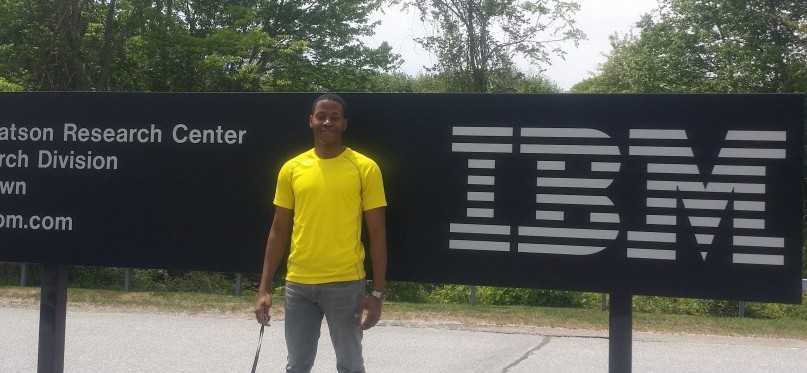
4 months did whizz by quite fast. And so the internship has come to an end! It was indeed a wonderful and inspiring experience and I am truly humbled and thankful for the opportunity! This post is more of a reflection on the entire experience -- initial challenges faced, how much of my goals I met, and what I would do differently. Hopefully, this helps future interns. Ofcourse, it is important to note that this internship was conducted within the confines of a research environment and certain things might differ compared to an engineering or business internship.
The Experience
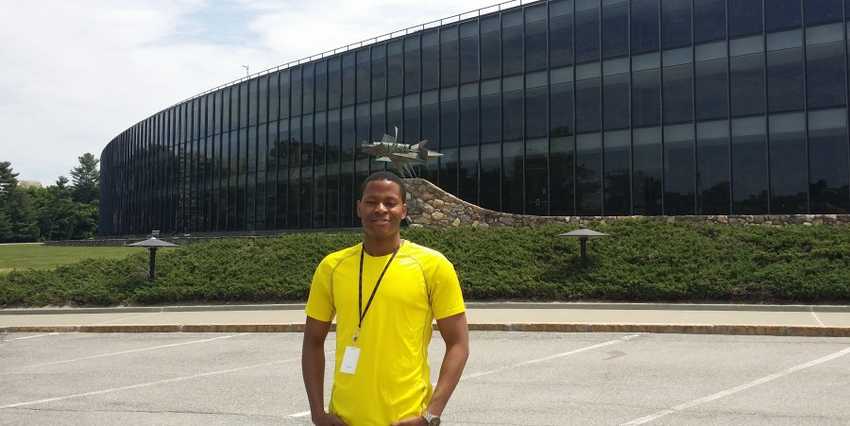
IBM Research Yorktown is a classic example of a research facility. Situated in a location distant from the madding crowds of the city, surrounded by beautiful nature, and filled with highly accomplished research scientists (including Nobel Laureates, inventors of important stuff etc). I interned with the Cognitive Environments Lab whose goal covers exploring ways in which cognitive agents can extend the decision making capabilities of humans. I also had the opportunity to listen to seminars from distinguished professors, industry practitioners, and covering topics from natural language processing (actually listened to the team that built ibm watson give a talk), health and wellness technologies, issues with electronic health records and brain inspired computing. There were also exciting intern events - outdoor barbecue, ping pong challenges etc.
Initial Challenges
Tools
The first set of challenges I encountered had to do with tooling. I was used to Microsoft Visio for diagramming, Adobe Fireworks for picture/image editing (icons etc), Microsoft Office for document editing, and Mendeley for reference management. Some of these were not immediately available, leading me to quickly learn to use tools such as Inkscape for image editing (which I learned to love) and the OpenOffice Draw for diagramming.
Scoping the Research Problem**
A 3 month (or 5 month) internship may not be enough time to identify a really cool research problem and solve it. For some interns, the research problem may already be defined and well scoped. In other cases (which I found to be more common), the internship simply starts with a general direction and a set of possible/desirable outcomes. Scoping the problem has to do with carefully identifying what is possible in general (e.g. can a pig fly ?), and what is possible given the time constraint (e.g. can I make a pig fly in 3 months?). A series of meetings with my team in the first 3 weeks, as well as literature review discussions and early tests were extremely useful to me in scoping my summer work. I was fortunate to have this rapid iterative approach early on in the internship as it pushed me gain a deeper understanding of my general area of work. Even at that, things still did change up until the 3rd month. C'est la vie.
Achieving Goals
Writing down my goals earlier (learn, communicate , focus) turned out to be really useful. It helped keep me honest. I also wrote weekly (sometimes biweekly) summaries of the work I had done each week. It helped me quickly assess if I was slacking off and misusing the autonomy which I had.
Learning
There are two important ways in which I believe I have grown -- technical skill set and research methodology . Technically, I have had the opportunity to work with prototyping a fairly complex Node.js application and done some socket programming using socket.io. Cool stuff. Second, I got further experience conducting user studies and interviews -- methodologies that I have used considerably less in the past.
Communication
It is hard to evaluate. However, I did make effort to regularly ask for feedback on my work (from my manager), and I believe integrating this feedback along the way really helped me ensure I was always on the same page with my team. I think this was instrumental to the overall positive final feedback I got at the end of the summer. Asking for feedback also gave me a chance to identify areas of weakness (my writing .. hehe), and valuable suggestions on how to get better.
Focus
I was on track for the most part, there were no extended periods of phasing out. There were more of planned breaks. There is still opportunity to organize myself better and explore the value of achieving more in less time.
What I'd do differently (better)
First, it would be a great idea to start structuring out the research problem possibly before the internship kicks off. Conduct literature reviews, draft initial ideas and share them with my manager ahead of arrival. Second, it would have been wise to ask about the tools available prior to starting the internship. This way, there'll be time to get familiar as necessary. Third, I'd keep my eyes more carefully on the stated deliverables of a research internship -- in my case, a research paper that reports on results obtained. This is important because it is the most straightforward way in which an intern is evaluated. Fourth -- I'd start writing as soon as I get a clear idea of the research direction.≈
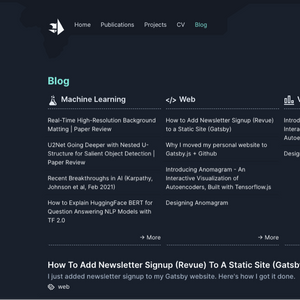 Research Internship -- So It Begins.
Research Internship -- So It Begins. Landing that Graduate Research Internship Position (CS, HCI)
Landing that Graduate Research Internship Position (CS, HCI)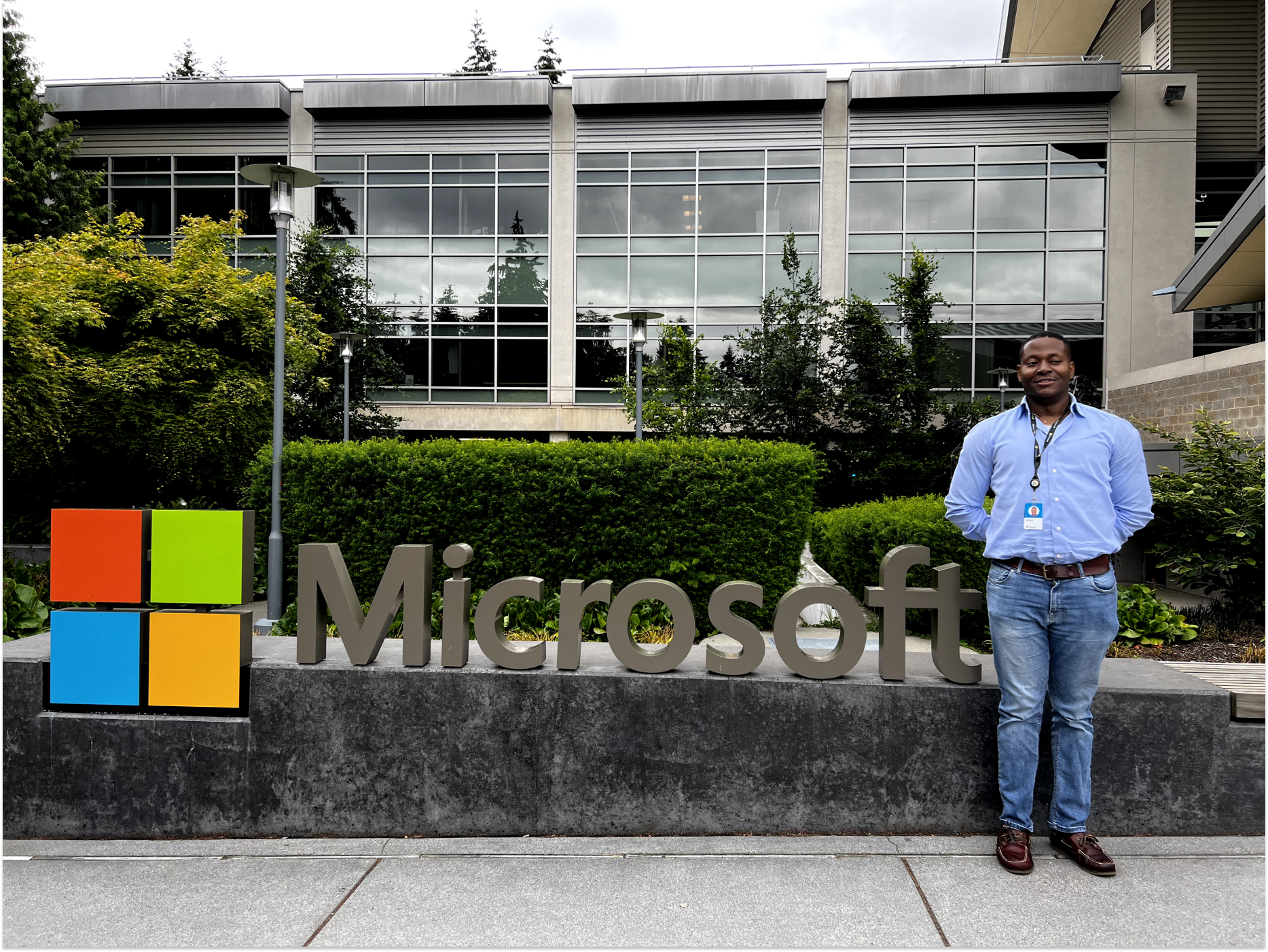 10 things I have loved about Microsoft (3 years in!)
10 things I have loved about Microsoft (3 years in!)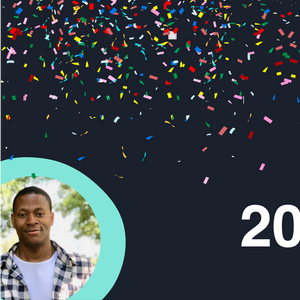 2021 Year in Review
2021 Year in Review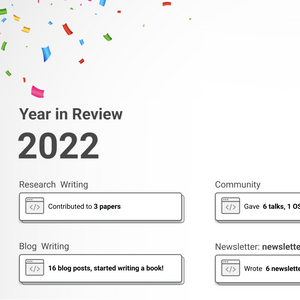 2022 Year in Review
2022 Year in Review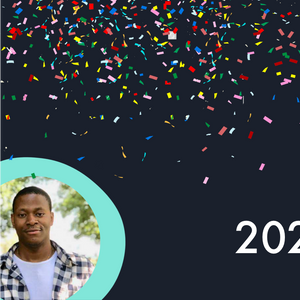 2020 Year in Review
2020 Year in Review 2023 Year in Review
2023 Year in Review